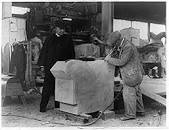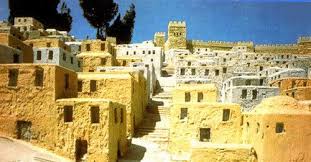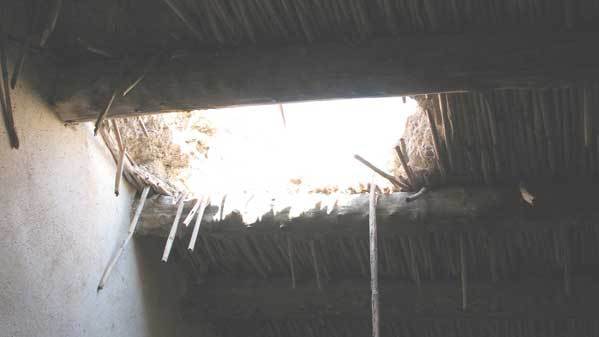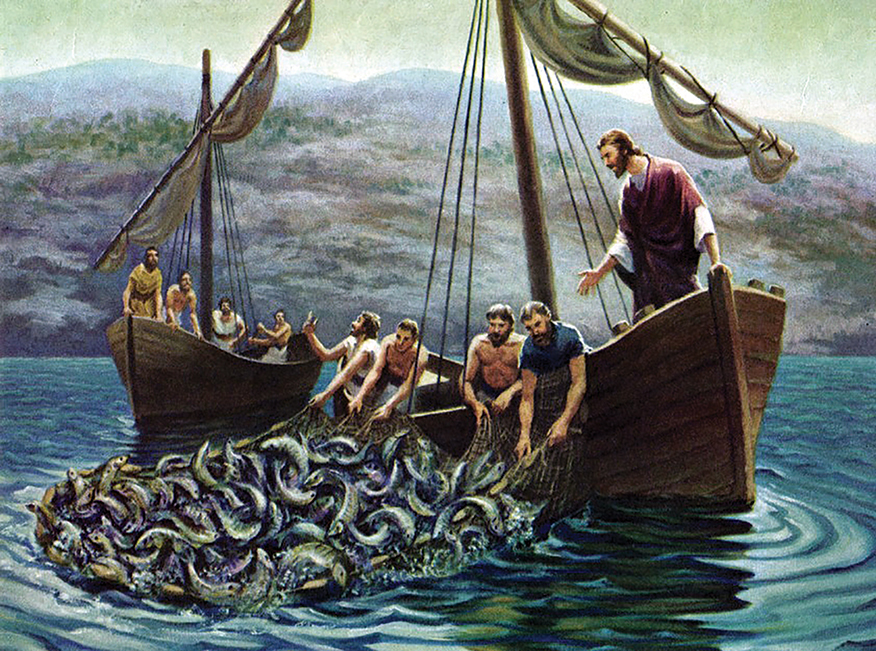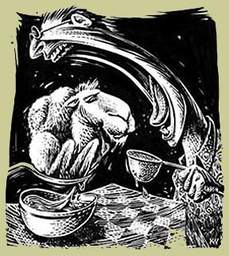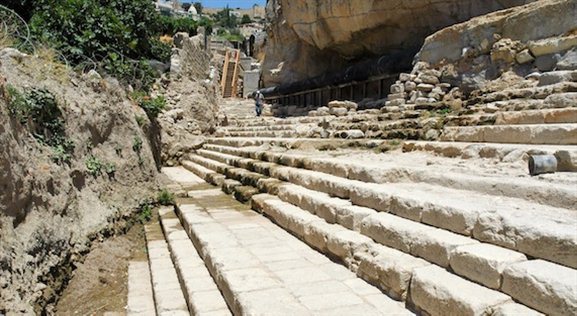Background Passages: Genesis 50: 15-21; Jeremiah 29:11
You’ve probably heard the business fable. A story with a moral.
A traveler encountered three stone cutters working in the roadside quarry. Eager to discover what they were working on, the traveler asked the first man what he was doing.
“I’m cutting stone,” he said, returning to his work.
No wiser than before, the traveler walked to the second man. “What are you doing?” He asked.
The second man continued working and gave a more elaborate response. “I’m shaping this stone so it is perfectly square and will fit neatly against that rock over there.”
Still unsure, the traveler approached the third stone cutter. He asked, “What are you doing?”
The stone cutter stopped his work, looked into the distance as if seeing a vision no one else could see. He replied reverently, “I’m building a cathedral.”
I was reminded of this story this week as I visited with a friend of mine who is a hospital administrator. We talked about how hard it is for some people to see how their plans and actions…how their managerial decisions…impact the rest of the organization. We talked about how important it is for leaders to help others see and embrace the bigger picture.
What is true in the business world also rings true in the spiritual realm. There is a real need to see God’s bigger picture.
The selfishness of a sinful world limits our ability to see God’s purpose and plan. Our disobedience, and the sinful choices of those with whom we interact, can put a hiccup in that plan. God continues to guide our lives, however, in ways that work through those misguided and often sinful decisions to put us where he needs us to be at any given point in time doing what he needs us to do to accomplish his will…his big picture.
When we trust enough to look beyond our own desires, God opens our eyes to a deeper meaning and purpose.
Consider the life of Joseph.
Joseph, the first child born to Jacob and his beloved Rachel. Ten older half-brothers, born to different mothers, resented their father’s show of favoritism to their younger sibling. Genesis 37:3 tells it plainly as it sets the stage for all that is about to happen. “Now Israel (Jacob) love Joseph more than any of his other sons…”
Joseph didn’t make it easy on them. The teenager basked in his favored status, wearing his expensive and colorful robe, gifted to him by his father, wherever he went. A constant reminder to his brothers that he was dearly loved and highly favored.
Joseph was a dreamer without a filter. His constant visions and musings painted him as their lord and master…stories he seemed to love sharing with his brothers. He delighted in telling them they would one day bow down to him. Twice he shared similar dreams and scripture says his brothers were jealous, angry and “hated him all the more.”
Taunted by one too many of Joseph’s dreams, the brothers’ resentment took a nasty turn.
You remember the story. Joseph’s brothers were tending the sheep in the rocky hillsides of Judea. After a time, Jacob sent Joseph to find his brothers.
“Go and see if all is well with your brothers and with the flocks and bring word back to me.”
That Joseph was not already with his brothers tending the sheep in the hillside was probably already a source of irritation among the brothers. When they saw him coming in his ornamental jacket, they stewed in murderous contempt. Not wanting to bloody their own hands, they simply dropped Joseph into a deep and dry well, intending to leave him there to die.
The fortuitous passing of a camel caravan presented a more lucrative option. The brothers pulled Joseph from the well and sold him for 20 shekels as a slave to the traders bound for Egypt. With a torn and tattered coat and a little goat’s blood, the brothers returned to their father, false concern etched on their faces, allowing their father to jump to the certain conclusion that his beloved son had been slaughtered by wild animals.
Betrayal.
Joseph probably bears some responsibility for the fractured relationship that existed between he and his brothers, but his brothers violated the expectations of that bond of brothers when they chose bitterness and hate over forgiveness and love.
You probably know the rest of the story as well. Through his God-given gift of interpreting dreams, Joseph rose to a place of prominence in the Pharaoh’s government. During a famine in the land of Israel, the brothers journeyed to Egypt to buy food and came face to face with the unrecognized brother they betrayed. In a series of events to see if his brothers had changed their hearts, Joseph eventually revealed himself to them, extending his forgiveness and inviting the whole family to live in his land of plenty.
It seems that the brothers always expected the heavy foot of revenge to eventually stomp on their heads. They believed that Joseph’s forgiveness and love was a face he put on as long as their father was alive. When Jacob passed away, they just knew Joseph would seek retribution.
They sent word to Joseph offering their lives as slaves. When the brother’s word’s reached Joseph he cried, saddened at the thought that during their time together in Egypt, he had failed to reassure them that they had been forgiven already.
He sent for his brothers. They threw themselves at the feet of Joseph offering again to be his slaves, hoping he would find enough forgiveness in his heart to spare their lives.
Then, he pulled them to their feet and scripture said, “he talked kindly to them.” His words meant to calm and reassure.
“Don’t be afraid. Am I not in the place of God? You intended harm for me, but God intended it for good to accomplish what is now being done, the saving of many lives.”
“God intended it for good…”
I read the story of Joseph and wonder how long it took him to get to that point. How long did it take him to see the bigger picture of God’s purpose and plan?
I suspect there were many nights while enslaved that he choked back the bitterness. Plenty of times when he languished in prison for crimes he did not commit where he blamed his brothers for his plight.
Maybe he began to see what God had in mind as he was called to interpret the Pharaoh’s dream. Maybe he caught a glimpse of God’s purpose when he rose through the ranks to become Pharaoh’s second in command. Maybe he finally saw God’s bigger picture when famine hit the land of Israel and his people came to Egypt for his help. Maybe it wasn’t until he saw the faces of his brothers that he knew how and why God had worked in his life.
Through his life, Joseph teaches us a great lesson. Everyone one of us will face betrayal, hurt, tragedy…a constant litany of struggles that enter and exit our lives. As we live and work through those problems, we have a tendency to focus too closely on the issue at hand…to fail to see the forest for the giant redwood in front of us.
If we’re not looking for the big picture, it’s easier to hold a grudge and more difficult to forgive. Easier to wallow in misery and more difficult to recover. Easier to abandon the joy of life and more difficult to accept and move on.
So how do we get to that point?
We…I…have difficulty at times really understanding that things that happen in life are within the control of an all-powerful and all-knowing God. It’s the old, “why does God let bad things happen to good people” argument. I can accept that all God’s plans are good. I just know that not all of man’s plans are good. Understanding how God can untwist the messes I make and get me back on the path he intended is mind-boggling. Yet, time and time again, I’ve experienced it.
It boils down to trust. It boils down to seeing beyond my situation and trying to see the circumstances of my life through God’s eyes…to see what he wants to accomplish in and through me. I will never get there if I focus on the mess I’ve made or the dirt the world throws in my face.
God’s plan for my life…for your life…is a good one despite the difficulties and hardships we face. It should always be our prayer that God will use whatever happens in our lives to bless our lives and the lives of others.
Jeremiah shared God’s promise to the people of Israel that their exile from their land would not last forever as long as they turned to God. The promise God offered Israel is the same promise he offers us.
“For I know the plans I have for you,” declares the Lord, “plans to prosper you and not to harm you, plans to give you hope and a future.”
God’s plans are always bigger and better than any plan I come up with on my own…a reality for which I am eternally grateful.
